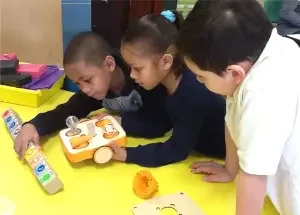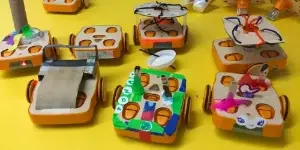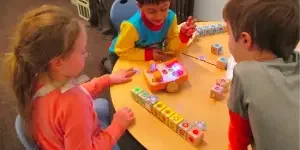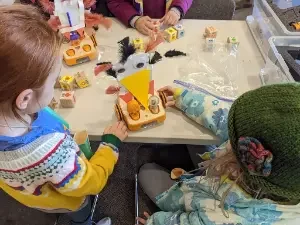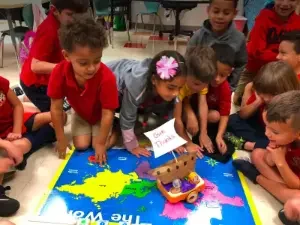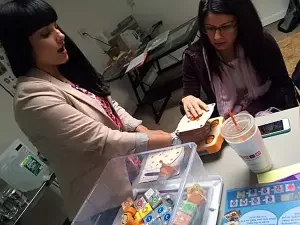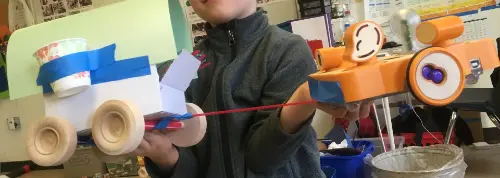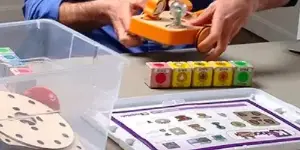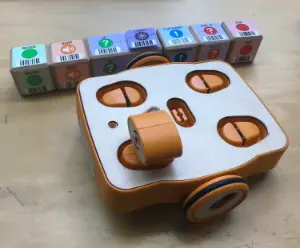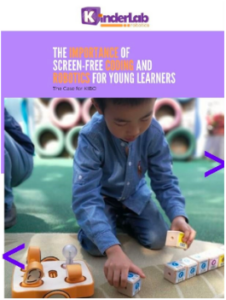Top 3 Reasons to Introduce Coding Robots for Elementary Students
Our guest blogger, Katherine (Tori) Lutz, submitted this blog on the benefits of coding robots for elementary students. She is a recent Florida State University graduate and a current student at Columbia University. Thank you, Katherine!
Preparing our kids for the world ahead of them is becoming more challenging as different and more complex skills become popular and even necessary. One of those skills is coding. Though it may seem like a skill that only few people know or need to know, the increasing importance of technology has caused a drastic rise in the need for coders as well. Plus, if nothing else, coding robots for elementary students is a fun way to help your child develop a range of other necessary skills that will help them in all areas of life.
Here are 3 reasons to introduce coding robots for elementary students
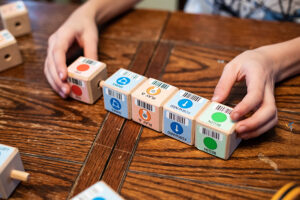
1. A Fun Way to Increase Motivation
Finding motivation can be a challenge for any age group, but it is often especially difficult with children who have a lot of energy and are still learning discipline and organizational skills.
Motivation is a significant key to success at any point in life, though, so it’s important to try to hone in on these skills early on so that kids can put themselves on the path to success sooner than later.
One of the most important things to remember when trying to strengthen motivation is that people are far more likely to feel motivated when they believe that they themselves are in charge of the results and outcomes of their efforts.
For instance, if a student feels that their teacher who is assigning their grades or the outside world is what determines their success, they are less likely to put in effort because it isn’t in their hands.
However, if a student feels that they are in control of the quality and success of their work and efforts, such as hard work at soccer practice leading to scoring a goal in a game, they are far more likely to put in the effort.
One way to help early learners have an opportunity to feel more in control of their work and efforts is by giving them project-based tasks instead of tedious smaller tasks.
In other words, if a young child has a larger assignment that requires their own planning, organization and discipline, they will have to strengthen their own skills and determine the timeline for the task.
This is why students often feel more excited about in-depth projects which requires critical thinking and creativity than they do about worksheets and daily homework assignments.
In addition to acting as an excellent project-based task that teaches young kids how to stay on task and organized, coding can be a great deal of fun!
One of the best and easiest ways that younger kids learn how to code is through playing and creating their own games, something that flexes their creativity and is hard to distinguish from recreational computer time.
By using a fun task to boost your child’s discipline and motivation, they won’t feel resistant to it and will make the most out of the experience.
2. Develop a Range of Necessary Skills
Even though coding seems like something for adults or older students to learn, it’s beneficial to start learning as early as the age of five.
Based on the nature of coding as a task and skill, a number of other strengths and abilities are required to succeed and progress.
Due to the often collaborative nature of coding, communication and teamwork skills can often be solidified through larger projects that may require more than one individual’s work and ideas.
Additionally, projects require creativity, problem-solving and discipline to complete, especially when an individual is still in the earlier stages of learning. Some projects can be tough, and it takes a lot of critical thinking and effort to make a quality and successful product.
Learning to code for elementary students can be a challenging skill to learn, but this challenge will help keep your child focused and organized and teach them to develop STEM skills to succeed. Plus, due to the fun nature of coding, they will likely be excited to make that goal a reality!
3. Help Secure Future Job Prospects
Due to society’s shift towards technology over the past few decades, coding is becoming an increasingly dependable and useful skill when looking for secure and stable career options.
With an expected one million open jobs in the U.S. tech industry by next year, coding is proving itself to be wildly useful. Not only will it open a large number of doors, it typically provides security in terms of a higher income.
David Dodge, CEO of Codakid, emphasizes the professional potential of teaching young children how to code early on: “Knowledge of coding is the fastest way to a stable and successful career. Since coders are in such high demand in virtually every field and so many computer science positions are opening up, strong coding skills almost guarantee a successful job search and a higher paycheck. Even if your child doesn’t go into coding professional, the skill makes for a great talking point and promotes skills that are useful for any position.”
No matter what interests a young child has, they can be supported by coding. It is a lucrative skill in any field, and it will increase the likelihood of your child following their dreams later in life in whatever field they decide upon.
In Summary
Introducing coding robots for elementary students can seem like a tricky task for students and adults, so it’s understandable to question why it would be something difficult to teach children.
Like foreign languages, coding is something that is not only possible to teach early on, but easier to grasp at a young age when a child’s brain absorbs everything efficiently.
Coding is a critical skill to learn nowadays, and it helps children improve motivation, develop additional useful skills and secure educational and professional opportunities later in life.
KIBO, the coding robot for elementary students, offers an inviting, engaging platform for young children to start their journey into creating with code in a fun and creative way. KIBO’s block-based coding language gives children control over the robot’s movements, sounds, and sensors, allowing them to express their imaginations with code. The KIBO curriculum for educators also teaches children to tell stories, create characters, and explore the world around them through code. KIBO is the number one choice in screen-free coding for kids – trusted by more parents and schools to introduce today’s youth to the wonders of technology and robotics.
For more resources on the importance of coding robotics for elementary students, and to learn more about the screen-free, hands-on KIBO robot, be sure to check out our other blog posts!

